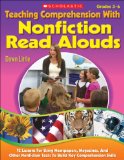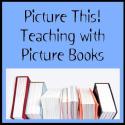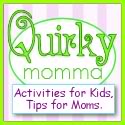Today’s guest post is by Maggie Cary of www.classroomtalk.com On her blog, Maggie often answers parent questions pertaining to their child’s education. Here is one such question and answer related to reading strategies for beginning readers:
Question: My daughter is in grade 1. She is bringing home little books to practice reading with us. We also have lots of books around our house and I notice that she is starting to pick them up and read them. She loves to read and seems quite confident. I know it all sounds great but here is the problem. When she is reading, she often skips words and reads some words incorrectly. When this behavior occurs, I am not sure what to do. Should I point out to her that she skipped over a word and when reading a word incorrectly or should I just tell her the word or is there a better way to help her? I want her to remain confident and not be afraid to try new books. Can you help?
Answer: It is very normal for emergent readers to do exactly what your daughter is doing. You know your daughter better than anyone, so if she is tired, reading just before sleeping, reading to your friends or relatives, or in other situations where you think she will just be frustrated or embarrassed, you probably won’t want to correct her. However, most of the time it will probably be just you and her, and/or other immediate family members, and that is when you find teachable moments. When she makes an error, begin by explaining to her that stories have to make sense. If the words that she is reading don’t make sense, then as a good reader she should stop and go back and try to figure out what is wrong. After the first few times, you may develop little natural short cut cues to relay this message. You may say something like; “makes sense?”, “huh?” or “mmmm”. You might incorporate a quizzical look or furl your brow, and then just utilize such gestures without saying a word. Soon, you won’t have to remind her at all, she’ll know when to go back on her own for most errors.
If you aren’t sure about or comfortable with your own cues, here are more specific cues you may want to utilize to help her monitor her own reading:
“Try that again and see what would make sense”;
“Try that again and get your mouth ready to say the first few sounds of that tricky word as you think about the story”;
“Look at the picture and try that again,” and/or;
“What’s wrong?”
As advised, be sure to keep reading a positive experience, don’t turn it into a chore for your child. Praise her when she reads correctly with such phrases as, “That makes sense” or I like the way that your words matched the story.”
It is also important to remember that you have a professional resource available to you, your child’s teacher. Consult with the teacher to see what he or she may be doing to improve your daughter’s reading. If your daughter is bringing home books to practice reading, chances are that she has read the book in school and the rereads are being utilized to practice one or more skills that she is working on at school. If you do not receive a note or explanation from the teacher as to what methods are being utilized to improve reading skills, ask. You should be practicing and reinforcing the skills that the teacher is working on in class.
Listed below are some techniques that 1st Grade teachers typically utilize to improve reading:
- Have your daughter read the title of a book aloud while pointing to the word being read;
- Take a picture walk. Before reading a book, look at the pictures or illustrations contained therein and talk about each page before going back to the beginning and reading the words;
- As you take the picture walk, ask her to find a few “sight” words that you know she knows. For example, ask her to find the word “the” and make a little frame around the word with her fingers as she comes across it in the text, and;
- Ask her to point to each word as she reads (Pointing is very important for beginning readers but as children progress, they should refrain from pointing as it slows them down).
Using the advice provided above should help your daughter become a better reader. While this advice should be helpful, it will not be nearly as effective unless reading is fun for your daughter. Always remember to back away from “teaching” and to focus more on her enjoyment and pride if you sense your lessons are creating undue stress and making reading a chore instead of a joy. Most importantly, keep on doing what you are doing, reading with your daughter and encouraging and praising her.
Maggie Cary, a National Board Certified Teacher has been an educator for over 18 years. She is certified in Secondary Education and holds a Master’s Degree in Early Childhood Education. Over the years she has mentored countless teachers and advised hundreds of parents. Mrs. Cary has taught children from preschool through high school.









